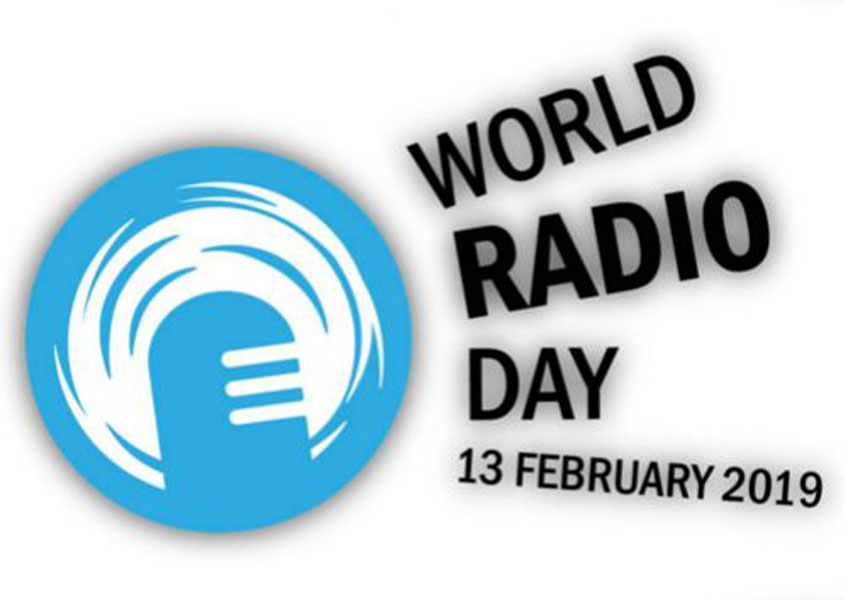+86 15093323284 hams@ailunce.com
World Radio Day 13 February 2019

"On this World Radio Day, let us recognize the power of radio to promote dialogue, tolerance, and peace." — UN Secretary-General António Guterres
Radio is the mass medium reaching the widest audience in the world. It is also recognized as a powerful communication tool and a low-cost medium. Radio is specifically suited to reach remote communities and vulnerable people: the illiterate, the disabled, women, youth and the poor while offering a platform to intervene in the public debate, irrespective of people’s educational level. Furthermore, radio has a strong and specific role in emergency communication and disaster relief.
There is also a changing face to radio services, which in the present times of media convergence, are taking up new technological forms, such as broadband, mobiles, and tablets.
Radio is still the most dynamic, reactive and engaging medium there is, adapting to 21st-century changes and offering new ways to interact and participate. Where social media and audience fragmentation can put us in media bubbles of like-minded people, radio is uniquely positioned to bring communities together and foster positive dialogue for change. By listening to its audiences and responding to their needs, radio provides the diversity of views and voices needed to address the challenges we all face.
2019 Theme: Dialogue, Tolerance, and Peace
Broadcasts that provide a platform for dialogue and democratic debate over issues, such as migration or violence against women, can help to raise awareness among listeners and inspire understanding for new perspectives in paving the way for positive action.
Radio programming can also build tolerance and surpass the differences separating groups by uniting them under common goals and causes, like ensuring education for one’s children or addressing local health concerns.
The history of World Radio Day.
UNESCO's General Conference, at its 36th session, proclaimed World Radio Day on 13 February.
UNESCO's Executive Board recommended to the General Conference the proclamation of World Radio Day, on the basis of a feasibility study undertaken by UNESCO, further to a proposal from Spain.
Radio is the mass media reaching the widest audience in the world. It is also recognized as a powerful communication tool and a low-cost medium. Radio is specifically suited to reach remote communities and vulnerable people: the illiterate, the disabled, women, youth and the poor while offering a platform to intervene in the public debate, irrespective of people’s educational level. Furthermore, radio has a strong and specific role in emergency communication and disaster relief.
There is also a changing face to radio services which, in the present times of media convergence, are taking up new technological forms, such as broadband, mobiles, and tablets. However, it is said that up to a billion people still do not have access to radio today.
A wide consultation process started in June 2011, carried out by UNESCO. It included all stakeholders, i.e. broadcasting associations; public, state, private, community and international broadcasters; UN agencies; funds and programmes; topic-related NGOs; academia; foundations and bilateral development agencies; as well as UNESCO Permanent Delegations and National Commissions. Among the answers, 91% were in favor of the project. The leader of the project, the Academia Española de la Radio, received over 46 letters of support from diverse stakeholders, including the Arab States Broadcasting Union (ASBU), the Asia-Pacific Broadcasting Union (ABU), the African Union of Broadcasting (AUB), Bangladesh NGOs Network for Radio and Communication (BNNRC), the Caribbean Broadcasting Union (CBU), the European Broadcasting Union (EBU), the International Association of Broadcasting (IAB), the North American Broadcasters Association (NABA), the Organización de Telecomunicaciones Iberoamericana (OTI), BBC, URTI, Vatican Radio, etc.
The date of 13 February, the day the United Nations radio was established in 1946, was proposed by the Director-General of UNESCO. The objectives of the Day will be to raise greater awareness among the public and the media of the importance of radio; to encourage decision makers to establish and provide access to information through radio; as well as to enhance networking and international cooperation among broadcasters.
The consulted stakeholders also proposed ideas for the programme of celebration: extensive use of social media, annual themes, a dedicated website enabling virtual participation, special radio programmes, radio programmes exchange, a festival involving key partners, and so forth.
On 14 January 2013, the United Nations General Assembly formally endorsed UNESCO's proclamation of World Radio Day. During its 67th Session, the UN General Assembly endorsed the resolution adopted during the 36th session of the UNESCO General Conference, proclaiming 13 February, the day United Nations Radio was established in 1946, as World Radio Day.
Source: http://www.un.org/en/events/radioday/
Message on World Radio Day
13 February 2019
Radio is a powerful tool.
Even in today's world of digital communications, radio reaches more people than any other media platform.
It conveys vital information and raises awareness of important issues.
And it is a personal, interactive platform where people can air their views, concerns, and grievances. Radio can create a community. For the United Nations, especially our peacekeeping operations, radio is a vital way of informing, reuniting and empowering people affected by war.
On this World Radio Day, let us recognize the power of radio to promote dialogue, tolerance, and peace.
Thank you.











